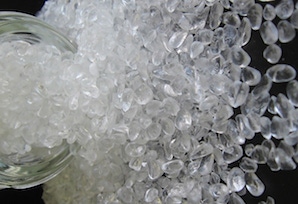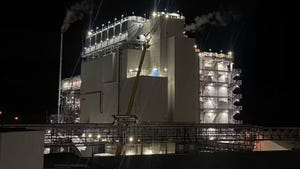Polyscope is “Engineering the plastics landscape”
June 9, 2016

Based in Geleen, the Netherlands, Polyscope was, from the day it started ten years ago, the world’s leading producer of styrene maleic anhydride (SMA) copolymers, said Ferdi Faas, the company’s Engineering Plastics Business Unit Director. In those ten years, the company has developed a push strategy, which aims to develop polymers for compounding and a pull strategy “In which we want to leverage our niche position. We talk to OEM’s to identify the needs that are out there and to develop solutions to fulfil these needs. Can we develop specific compounds, without compromising our other business?”
 In this way, Polyscope has developed into an additives and a compounds supplier. Once of the company’s major compounding success stories, is that of the sunroof. At K 2013, the company was exhibiting its first large thermoplastic sunroof frame for serial production of the Citroen DS3 Cabrio, based on its XIRAN compound, which offered high dimensional accuracy, very-low warpage, superior adhesion and a low density of the final part. The XIRAN IZ-grades, which are terpolymers based on styrene, maleic anhydride and a third monomer, N-phenylmaleimide, are an efficient solution for improving the thermal performance, with very low levels of residual volatiles and easy processability at standard processing conditions.
In this way, Polyscope has developed into an additives and a compounds supplier. Once of the company’s major compounding success stories, is that of the sunroof. At K 2013, the company was exhibiting its first large thermoplastic sunroof frame for serial production of the Citroen DS3 Cabrio, based on its XIRAN compound, which offered high dimensional accuracy, very-low warpage, superior adhesion and a low density of the final part. The XIRAN IZ-grades, which are terpolymers based on styrene, maleic anhydride and a third monomer, N-phenylmaleimide, are an efficient solution for improving the thermal performance, with very low levels of residual volatiles and easy processability at standard processing conditions.
“Now, a mere three years later at K 2016, we’ve gone from supplying one to supplying 28 sunroof systems. It’s been a huge success, and we now work with or are talking to all five automotive sunroof systems suppliers in the market,” said Ferdi. The newest grades are also finding application in appliances and consumer products, where increased heat resistance is required.
On the additives side, Polyscope has built a leading position at large global ABS and ASA polymer producers and compounders since the introduction of its XIRAN IZ grade with high efficiency in 2013. And building on the current success, Polyscope recently added a new grade, which boosts heat resistance even further. The new grade has a glass transition temperature (Tg) of 198˚C and can be exposed to high processing temperatures with excellent miscibility in styrenic polymers.
Building even further, the benefits of XIRAN heat booster additives are now also proving successful in increasing the heat performance of other styrenic polymers, such as PS and SAN, as well as PMMA. An example is high-impact polystyrene with an increased heat resistance for microwaveable food packaging.
According to Ardy Doelen, Sales and Business Development Manager, the XIRAN IZ grades are “globally accepted as the most efficient heat boosters for ABS.”
“And now we’re bridging the gap to different engineering plastics, moving into other engineering plastics or even commodity materials that need heat performance,” he said.
To top it off, the company announced that at this year’s K Show, it will be showcasing, next to its sunroof frames and heat boosters, a third portfolio which will be aimed at optimizing polymer blends. While the company has not yet disclosed any further information about the new product, both Ferdi and Ardy said that it was compatibilizer-based, specifically designed to sell to compounders.
About the Author(s)
You May Also Like


